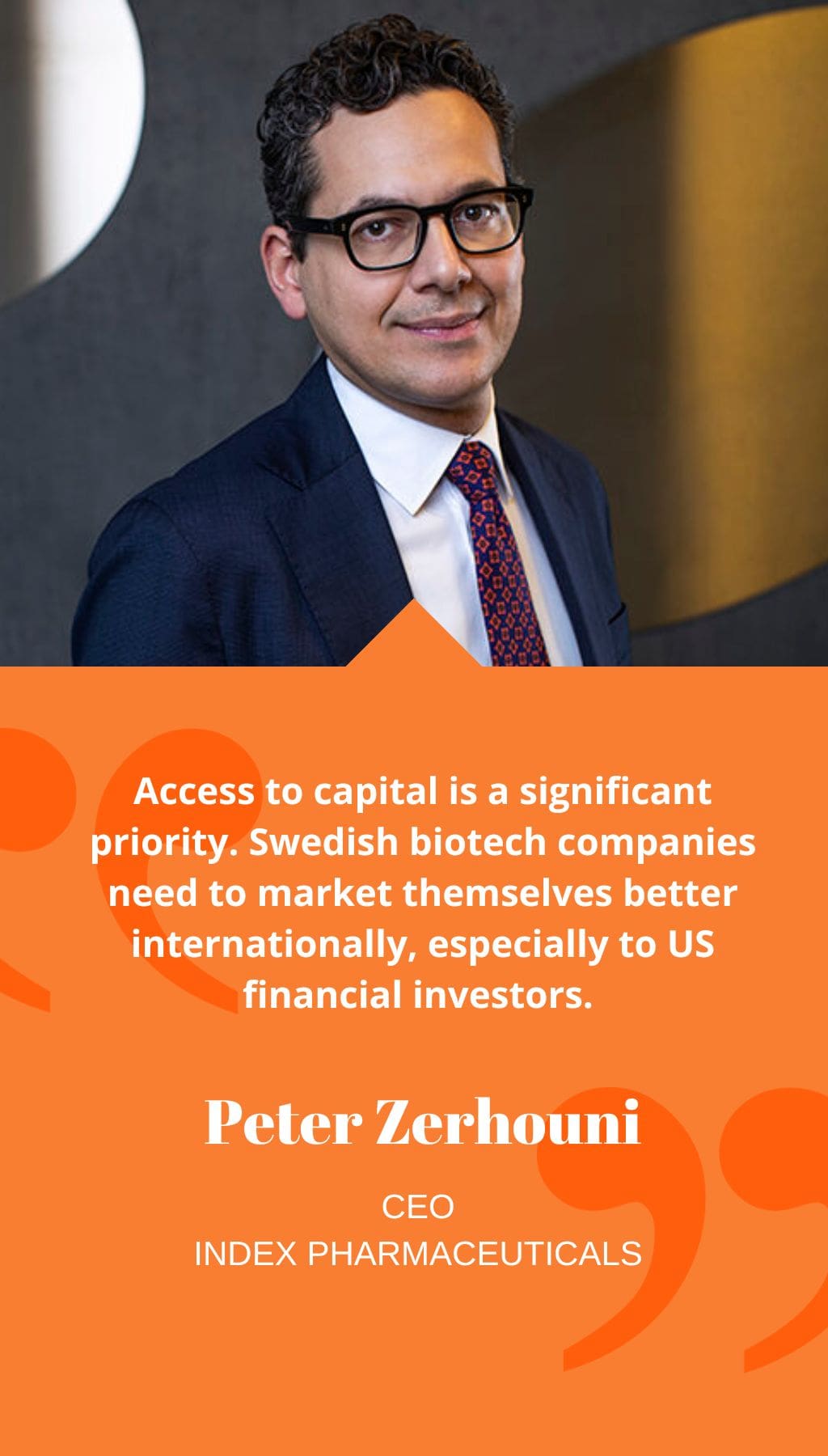
- Sweden | 25 May 2020

Could you introduce InDex Pharma to our international audience?
InDex Pharma is a small drug development company that focuses on immunological diseases with unmet medical need. Our lead asset, cobitolimod, is being developed for moderate to severe ulcerative colitis, an inflammatory bowel disease. We recently completed a phase IIb clinical trial with cobitolimod, meeting the primary endpoint and demonstrating excellent efficacy and safety. The trial was conducted across 12 European countries, involving 213 patients at 91 clinics. With this positive outcome, we plan to advance cobitolimod to phase III and determine the best route for commercialization. Our organizational model involves project managers in key functions and a network of fixed consultants, with outsourcing of clinical research and manufacturing services.
You were appointed as CEO in 2015. Tell us about your role in taking the company to the next level and your priorities.
When I joined in 2015, there had been a clinical study conducted with cobitolimod in ulcerative colitis, which showed promising signals despite not meeting the primary endpoint. At the same time, our partner Almirall decided to focus on dermatology and returned the full rights of cobitolimod to InDex. My priority was to set a new direction and development plan for cobitolimod. We modified the positioning of the asset and designed the phase IIb study with input from regulatory authorities. To fund the study, we went public on Nasdaq First North Stockholm, raising USD 25 million. We enrolled the first patient in June 2017, and in August 2019, we announced the positive outcome of the phase IIb study.
What is the unmet medical need that cobitolimod aims to address?
Ulcerative colitis is a chronic inflammation of the colon with severe impacts on patients’ quality of life. Common symptoms include frequent and sudden blood and mucus mixed diarrhea, which can lead to patients being confined to their homes. Current drugs on the market have limited efficacy and significant side effects, leaving a large segment of patients without satisfactory treatment options. Cobitolimod targets moderate to severe ulcerative colitis patients who do not respond to conventional therapy. It provides an anti-inflammatory effect locally in the colon and offers relief from clinical symptoms. With a five-billion-dollar market for biological drugs in ulcerative colitis, there is significant potential for growth. Cobitolimod is a first-in-class compound and the furthest advanced Toll-like receptor 9 (TLR9) agonist within inflammatory bowel disease.
Could you summarize the safety profile of cobitolimod compared to other drugs on the market?
In our recent phase IIb study, there were no differences in the side-effect profile between cobitolimod and placebo. Cobitolimod has not shown any negative safety signals in any of our clinical studies. The drug’s rectal delivery directly to the inflamed colon minimizes off-target effects. In contrast, drugs like TNF inhibitors, such as Remicade and Humira, which are commonly used, have systemic effects and increase the risk of severe infections.
What are your priorities moving forward?
Our main priority is advancing cobitolimod to phase III, with plans to include the first patient in the second half of 2020. We will engage in regulatory interactions with the FDA and EMA, develop protocols, conduct market research, manufacture study drug, and set up CROs. InDex secured financing for these phase III preparatory activities through a share issue in 2019. We are also evaluating the best route for commercialization and engaging in business development activities with potential licensing partners.
What should be the top priority for the government and industry to attract more foreign investment in life sciences in Sweden?
Access to capital is a significant priority. Swedish biotech companies need to market themselves better internationally, especially to US financial investors. Although Swedish company valuations are lower than in the US, US investors still prefer to invest in US assets. Creating successful Swedish biotech stories could attract their attention. Additionally, Swedish companies tend to go public at an earlier stage, thanks to funding from retail investors. While this benefits early-stage companies, the retail market may not be deep enough to support later stages of development requiring larger amounts of capital. To realize the full potential and build larger companies, attracting international institutional investors will be crucial.
How has your finance and science background helped you lead InDex Pharma?
Having a background in both finance and science has been a valuable combination. With a master’s degree in biology and previous experience in banking, I can understand the science behind our business as well as investors and the financial system.
Where do you hope to see InDex Pharmaceuticals in the next five years?
With cobitolimod’s outstanding combination of efficacy and safety, I envision InDex growing into a larger company and taking a leading position in the field of inflammatory bowel disease. This growth would enable us to explore the full potential of our other assets, as cobitolimod comes from a platform technology with applications in modulating the immune system for various diseases. It would be exciting to be involved in the final development and commercialization of cobitolimod while simultaneously developing additional compounds in parallel for other therapeutic areas.














